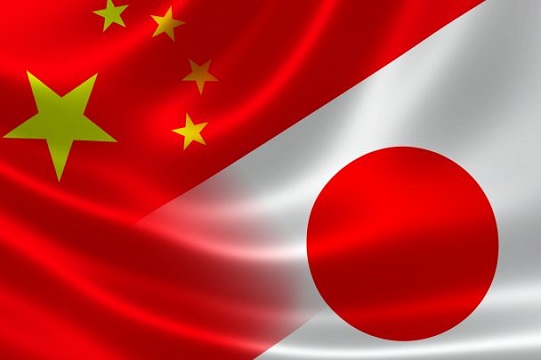
How Japan sees China
- 27 November 2019
- 6 – 8pm
- Daiwa Foundation Japan House, 13 - 14 Cornwall Terrace, London NW1 4QP. Nearest tube: Baker Street
- http://dajf.org.uk/event/how-japan-sees-china
- 020 7486 4348
- events@dajf.org.uk
- Tweet
What does China’s Belt and Road Initiative (BRI) mean for Japan? On the one hand, China’s infrastructure investments in Asia, Africa, and Europe pose challenges to Japan’s political and economic influence. On the other hand, despite the reservations and scepticism, the Japanese government seems to recognise that BRI is now the “only game in town”— an international political and economic “fact on the ground” that Tokyo has no choice but to accept.
In this talk, Dr Taku Tamaki will explore the possibility of borrowing the ideas of Japanese philosopher Tetsurō Watsuji as a way to start conceptualising what BRI means for Japan. He posits that BRI involves a subject-subject dynamic involving Japan, on the one hand, with China and the US, among others, on the other. Furthermore, the re-designation of geographical signifier from Asia-Pacific to Indo-Pacific implies an environment-subject dynamic in which Japan’s existential space has been recalibrated. In short, there is a possibility that BRI poses a new international reality for Japan.
Watsuji’s idea of aidagara suggests that human existence is comprised of a complex web of inter-relationships involving subject-subject, as well as environment-subject, inter-relationships. This means that Watsuji’s philosophy is well-suited to provide us with a conceptual framework for understanding how Japan is seeking to respond to the challenges of BRI. Through Watsuji, we can see that BRI represents Japan’s aidagara with the international environment.
About the contributors
Dr Taku Tamaki
Dr Taku Tamaki is a Lecturer in International Relations, specialising in the international political dynamics of the Asia-Pacific region. After gaining his PhD at Aberystwyth, he was a Research Fellow at the Institute of Asian Cultural Studies at International Christian University in Tokyo, and taught International Relations at Plymouth before moving to Loughborough in 2007. He has taught a wide range of courses on international politics and international political economy, including International Relations Theory, the United Nations and International Organisations, the Asia-Pacific in Global Politics, and the International Political Economy of the Asia-Pacific Region. Having spent four years as a US Treasuries broker at Cantor Fitzgerald (Tokyo office), he brings first-hand experience of political economy to the classroom, having experienced the market turmoil immediately following the announcement of the collapse of Barings Bank in 1995.
Dr Giulio Pugliese
Dr Giulio Pugliese (moderator) is a Lecturer in War Studies at King’s College London. He specialises in in politics, both domestic and international, in the Asia-Pacific with a focus on Japan, China and the United States. After studying at the University of Naples (BA) and the Paul H. Nitze School of Advanced International Studies, Johns Hopkins University (MA), he completed his PhD at Cambridge University with extensive fieldwork in Tokyo. Prior to his appointment at King’s College London he worked as an Assistant Professor at Heidelberg University’s Institute of Chinese Studies, as well as four years working in Japan in a variety of roles, and is a member of the editorial board of Asia Major, Italy’s leading academic publication on current Asian affairs. He has also co-authored a book, Sino-Japanese Power Politics: Might, Money and Minds (Palgrave MacMillan, 2017), which will be translated into Korean through Myung-In Academic Publishers.
